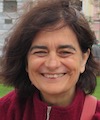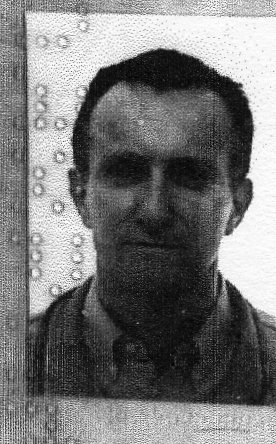Studiare
In questa sezione è possibile reperire le informazioni riguardanti l'organizzazione pratica del corso, lo svolgimento delle attività didattiche, le opportunità formative e i contatti utili durante tutto il percorso di studi, fino al conseguimento del titolo finale.
Calendario accademico
Il calendario accademico riporta le scadenze, gli adempimenti e i periodi rilevanti per la componente studentesca, personale docente e personale dell'Università. Sono inoltre indicate le festività e le chiusure ufficiali dell'Ateneo.
L’anno accademico inizia il 1° ottobre e termina il 30 settembre dell'anno successivo.
Calendario didattico
Il calendario didattico indica i periodi di svolgimento delle attività formative, di sessioni d'esami, di laurea e di chiusura per le festività.
Per l'anno 2008/2009 Nessun calendario ancora disponibile
Calendario esami
Gli appelli d'esame sono gestiti dalla Unità Operativa Segreteria Corsi di Studio Scienze e Ingegneria.
Per consultazione e iscrizione agli appelli d'esame visita il sistema ESSE3.
Per problemi inerenti allo smarrimento della password di accesso ai servizi on-line si prega di rivolgersi al supporto informatico della Scuola o al servizio recupero credenziali
Per dubbi o domande leggi le risposte alle domande più frequenti F.A.Q. Iscrizione Esami
Docenti
 alberto.benvegnu@univr.it
alberto.benvegnu@univr.it

Berardi Andrea
 andrea.berardi@univr.it
andrea.berardi@univr.it
 045 8425452
045 8425452
Fraccarollo Luigi
 luigi.fraccarollo@unitn.it
luigi.fraccarollo@unitn.it

Magazzini Laura
 laura.magazzini@univr.it
laura.magazzini@univr.it
 045 8028525
045 8028525
 gino.mariotto@univr.it
gino.mariotto@univr.it
Mastrogiacomo Elisa
 martina.menon@univr.it
martina.menon@univr.it
 angelo.pica@univr.it
angelo.pica@univr.it
Plazzi Alberto
 alberto.plazzi@univr.it
alberto.plazzi@univr.it

Squassina Marco
 marco.squassina@univr.it
marco.squassina@univr.it
 +39 045 802 7913
+39 045 802 7913
Venturin Manolo
 simone.zuccher@univr.it
simone.zuccher@univr.it
Piano Didattico
Il piano didattico è l'elenco degli insegnamenti e delle altre attività formative che devono essere sostenute nel corso della propria carriera universitaria.
Selezionare il piano didattico in base all'anno accademico di iscrizione.
Il piano didattico 2008/2009 sarà disponibile entro il 2 aprile. In attesa che venga pubblicato consulta il piano dell'anno accademico in corso al seguente link.
Legenda | Tipo Attività Formativa (TAF)
TAF (Tipologia Attività Formativa) Tutti gli insegnamenti e le attività sono classificate in diversi tipi di attività formativa, indicati da una lettera.
Microeconomia (2009/2010)
Codice insegnamento
4S00239
Docente
Coordinatore
Crediti
6
Lingua di erogazione
Italiano
Settore Scientifico Disciplinare (SSD)
SECS-P/01 - ECONOMIA POLITICA
Periodo
II semestre dal 1-mar-2010 al 15-giu-2010.
Sede
VERONA
Obiettivi formativi
Il corso è disegnato con lo scopo di dare agli studenti una sistematica base di teoria economica. Le lezioni coprono: 1) le scelte di consumo, 2) la teoria dell’impresa, 3) le forme di mercato (concorrenza perfetta, monopolio e oligopolio) e 4) teoria dei giochi.
Ogni argomento trattato durante le lezioni frontali sarà approfondito da esercizi assegnati settimanalmente agli studenti.
Alla fine del corso gli studenti avranno acquisito una solida conoscenza della teoria economica che consentirà loro l’approfondimento nei corsi successivi di economica.
Programma
1 Teoria del consumo
a. Preferenze
b. Funzione di utilità
c. Vincolo di bilancio
d. Scelte ottimali del consumatore
e. Statica comparata: effetto di sostituzione, effetto reddito, equazione di Slutsky
2. Teoria dell'impresa
a. funzione di produzione
b. massimizzazione del profitto
c. minimizzazione dei costi
3. Strutture di mercato
a. concorrenza perfetta
b. monopolio
c. oligopolio
4. Teoria dei giochi
Modalità d'esame
Prova scritta
Tipologia di Attività formativa D e F
Offerta formativa da definire
Prospettive
Avvisi degli insegnamenti e del corso di studio
Per la comunità studentesca
Se sei già iscritta/o a un corso di studio, puoi consultare tutti gli avvisi relativi al tuo corso di studi nella tua area riservata MyUnivr.
In questo portale potrai visualizzare informazioni, risorse e servizi utili che riguardano la tua carriera universitaria (libretto online, gestione della carriera Esse3, corsi e-learning, email istituzionale, modulistica di segreteria, procedure amministrative, ecc.).
Entra in MyUnivr con le tue credenziali GIA: solo così potrai ricevere notifica di tutti gli avvisi dei tuoi docenti e della tua segreteria via mail e anche tramite l'app Univr.
Prova Finale
1. La prova finale prevede la preparazione sotto la guida di un relatore di un elaborato scritto (tesi), che può consistere nella trattazione di un argomento teorico, o nella risoluzione di un problema specifico, o nella descrizione di un progetto di lavoro, o di un'esperienza fatta in un'azienda, in un laboratorio, in una scuola ecc. La tesi, preferibilmente redatta in TeX/LaTeX/AMSTeX e usando il pacchetto LaTeX Frontespizio, può essere inviata preliminarmente in formato elettronico ai membri della Commissione Valutazione Tesi e dovrà essere presentata, in duplice copia, al momento della discussione. La tesi potrà essere redatta anche in lingua inglese.
2. La discussione della tesi, che dovrà durare indicativamente tra i venti e i trenta minuti, avverrà davanti ad una Commissione Valutazione Tesi nominata dal Presidente del collegio Didattico di Matematica. ll Presidente della commissione è il professore di ruolo di più alto grado accademico. La Commissione Valutazione Tesi è composta da almeno tre Docenti tra cui possibilmente il Relatore. Ogni Commissione Valutazione Tesi potrà valutare più studenti in funzione del contenuto del lavoro da essi presentato. La discussione della tesi viene effettuata durante i trenta giorni precedenti la data stabilita per la sessione di Laurea, ne viene data adeguata comunicazione ed è aperta al pubblico.
3. La Commissione Valutazione Tesi attribuisce ad ogni studente un punteggio della prova finale che va da zero a cinque. La valutazione della prova finale si articola in maniera tale da tenere conto delle conoscenze acquisite dallo studente durante il lavoro di tesi, del loro grado di comprensione, dell'autonomia di giudizio, delle capacità dimostrate dallo studente di applicare dette conoscenze e di comunicare efficacemente e compiutamente l'insieme degli esiti del lavoro ed i principali risultati ottenuti (si vedano la Tabella 1 per tesi di laurea triennale e la Tabella 2 per tesi di laurea magistrale, in calce al presente regolamento). Il Presidente della Commissione Valutazione Tesi invia una relazione, firmata da tutti i componenti della Commissione, al Presidente della Commissione di Esame Finale indicando per ogni studente il punteggio attribuito per l'esame finale ed un eventuale breve giudizio.
4. La Commissione di Esame Finale, unica per tutti gli studenti di quella sessione di Laurea, viene nominata dal Presidente del Collegio Didattico di Matematica. Il Presidente della commissione è il professore di ruolo di più alto grado accademico. La Commissione di Esame Finale deve essere composta da un Presidente e almeno da altri quattro Commissari scelti tra i docenti dell'Ateneo.
5. La Commissione di Esame Finale determina per ogni studente il punteggio finale sommando la media, pesata rispetto ai relativi CFU, espressa in centodecimi, dei voti degli esami del piano di studi, escluse le attività in sovrannumero, con il punteggio della prova finale. Aggiunge inoltre il punteggio attribuito alla carriera dello studente, da zero a due (si veda la Tabella 3, in calce al presente regolamento). Il voto finale, espresso in centodecimi, si ottiene arrotondando all'intero più vicino (all'intero superiore, in caso di equidistanza) il punteggio ottenuto, senza eccedere 110 centodecimi e assegnando la lode solo con l'unanimità della Commissione di Esame Finale al candidato che abbia raggiunto i 110 centodecimi dopo l'arrotondamento.
6. La Commissione di Esame Finale procede alla proclamazione dei nuovi Laureati in Matematica Applicata o Laureati magistrali in Mathematics con una cerimonia pubblica ed ufficiale.
Documenti
| Titolo | Info File |
|---|---|
|
|
pdf, it, 31 KB, 29/07/21 |
|
|
pdf, it, 31 KB, 29/07/21 |
|
|
pdf, it, 171 KB, 20/03/24 |
Elenco delle proposte di tesi
| Proposte di tesi | Area di ricerca |
|---|---|
| Formule di rappresentazione per gradienti generalizzati | Mathematics - Analysis |
| Formule di rappresentazione per gradienti generalizzati | Mathematics - Mathematics |
| Proposte Tesi A. Gnoatto | Argomenti vari |
| Tesi assegnate a studenti di matematica | Argomenti vari |
| THESIS_1: Sensors and Actuators for Applications in Micro-Robotics and Robotic Surgery | Argomenti vari |
| THESIS_2: Force Feedback and Haptics in the Da Vinci Robot: study, analysis, and future perspectives | Argomenti vari |
| THESIS_3: Cable-Driven Systems in the Da Vinci Robotic Tools: study, analysis and optimization | Argomenti vari |
Modalità di frequenza
Come riportato nel regolamento didattico, la frequenza è in generale non obbligatoria, con la sola eccezione di alcune attività laboratoriali. Per queste sarà chiaramente indicato nella scheda del corrispondente insegnamento l'ammontare di ore per cui è richiesta la frequenza obbligatoria.
Gestione carriere
Area riservata studenti
Erasmus+ e altre esperienze all’estero
Orientamento in itinere per studenti e studentesse
La commissione ha il compito di guidare le studentesse e gli studenti durante l'intero percorso di studi, di orientarli nella scelta dei percorsi formativi, di renderli attivamente partecipi del processo formativo e di contribuire al superamento di eventuali difficoltà individuali.
E' composta dai proff. Sisto Baldo, Marco Caliari, Francesca Mantese, Giandomenico Orlandi e Nicola Sansonetto



















